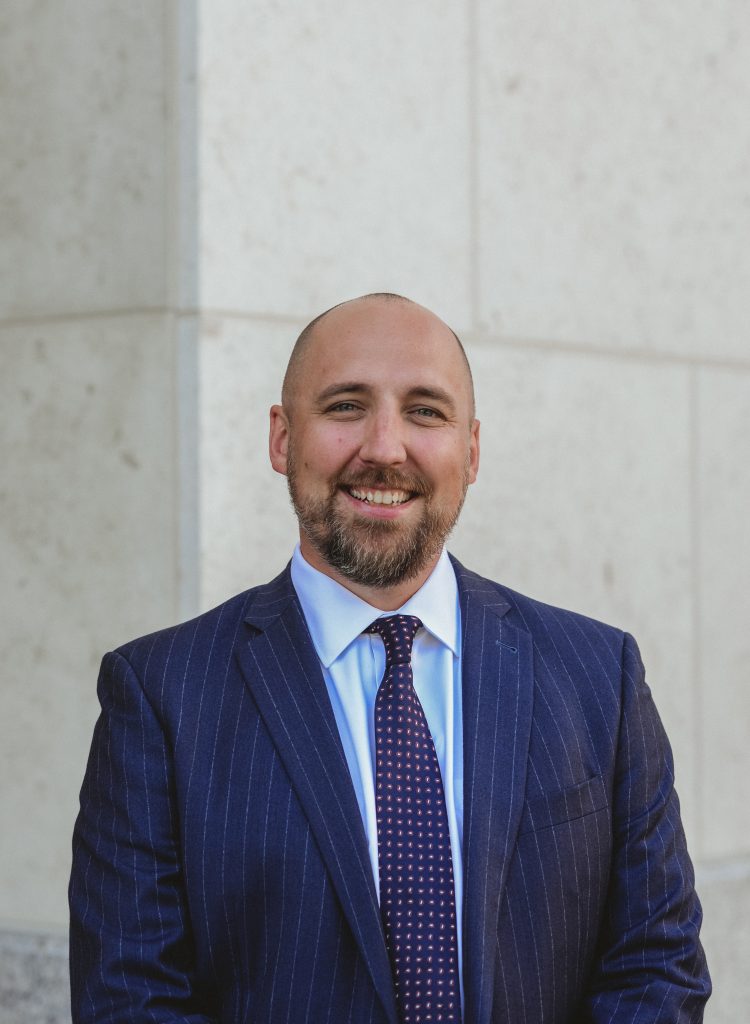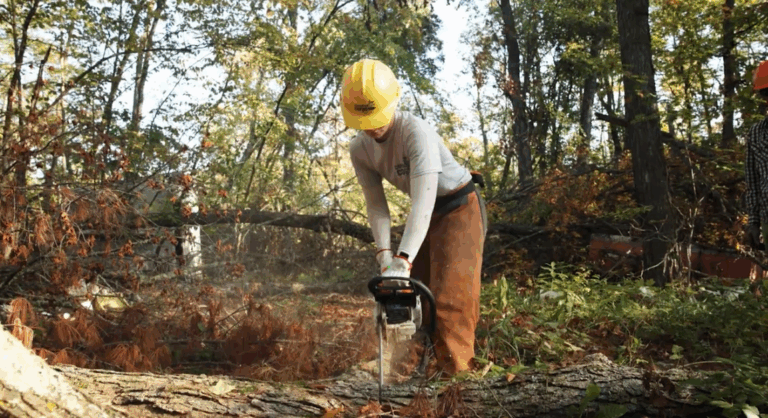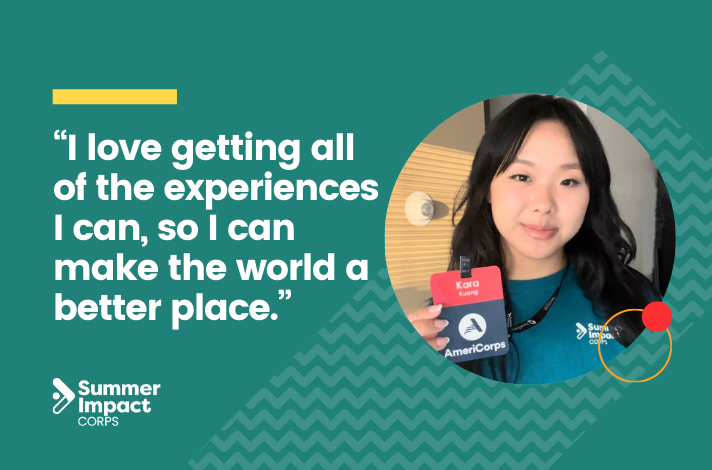Jordan Hansen says that AmeriCorps service “gave me more than I would ever be able to give back”: It supported him in his recovery from a substance use disorder, started him on the path to a meaningful career, and coaxed him out of a misanthropic, angry worldview into someone who was voted “Most Optimistic” by his peers.
Hansen became an AmeriCorps member more than a decade ago — through “serendipity or dumb luck,” he says with a laugh — when his then-girlfriend (now wife) showed him an AmeriCorps recruiting ad.
With $17 in his bank account, two broken feet after an accident and no idea what would come next in his life, he joined and was placed at a community service agency that provided vocational support for people with disabilities or severe, persistent mental illness. There, he trained clients in basic job skills like using email and Microsoft Office, helped them apply for jobs and went out into the community to connect with potential employers.
As he grew into the job and grew in his recovery, Hansen felt a profound change.
“I was really cynical and pessimistic, to the point where that was basically my entire identity,” he says. “But as that work and recovery got their hooks in me, I found a way to be useful and I met wonderful people. Actually, I fell in love with people again.”
Being deep in addiction throughout high school and college means that Hansen doesn’t have fond memories of those years; he found real camaraderie for the first time in his AmeriCorps cohort (the colleagues responsible for giving him that “Most Optimistic” award). And “my clients were really the thing that changed me,” he recalls.
Serving gave Hansen a way to address his cynicism about the world by becoming an active participant in making things better. “This was the first time in my life that I got a glimpse of the possibility of work being life-giving,” he says, “that it could support my recovery not as part of my program, but as an additional way for me to find meaning and purpose. When I’m feeling useful, I feel good.”
Something has to change — and we can all help
Hansen’s close-up view of the obstacles faced by his clients who struggled with substance use disorders showed him “policy failures in human form” every day. He vividly remembers a young woman who came in for services looking sweaty, fidgety and in pain.
“It looked to me like she was withdrawing from opioids,” he remembers, “so I asked her about it and she said yes. Like so many people, she didn’t know how to access care that would be immediate,” with stabilizing medications to ease her withdrawal symptoms and keep her safe, and mental health services to help her with effective next steps.
That client and many others like her inspired Hansen to earn a master’s degree in addiction counseling and begin a career focused on helping people with substance use disorders. Today, he’s the chief executive officer of YourPath, a startup devoted to connecting people with effective, easy-to-access addiction treatment.
The current acute-care model — someone has a substance use crisis, goes to an emergency room, is diagnosed and stabilized and then discharged — just doesn’t work, he says. It’s ineffective, costly and inequitable; people who have repeated crises bounce between jail and hospitals, and many die. YourPath aims to get people stabilized and into care the day they need it, and will offer medication-assisted treatment for alcohol and opioid use disorders via telehealth and in-person services at five Minnesota sites.
Advocating for systems change is another critical part of YourPath’s work. “Every overdose is a policy failure,” Hansen says firmly. “Everyone who goes to jail for having what is essentially a medical condition is a policy failure.”
He urges Minnesotans to come together to effect change by contacting elected officials, from Congress to the state legislature to the city council, to demand better policies around treatment for substance use disorders and funding for programs that enable people to get treatment that works.
And, he says, we can come together in programs like AmeriCorps. “When you hear people talk about what’s going on in this country, you hear a lot of despair around the opioid crisis, and a lot of descriptions of the problem. What we’re missing is a sense of community and civic engagement. At the national level, AmeriCorps is about the best thing we’ve got toward trying to establish engagement and pride at scale.
“That’s what I found in recovery: a sense of community and responsibility for being a steward of something bigger than me. And that’s really in alignment with what AmeriCorps can be for the nation.”




